
Go World Travel is reader-supported and may earn a commission from purchases made through links in this piece.
Sitting behind the pilot of the Cessna, I finally catch a glimpse of the Osa Peninsula. It is a wild, seemingly untouched piece of southern Costa Rica, where furry green forests kiss the sea.
The landing strip at Puerto Jiminez is short – will we stop before hitting those trees? Indeed, we land without effort and a wall of humidity hits as soon as the door opens.
The Magic of the Osa Peninsula
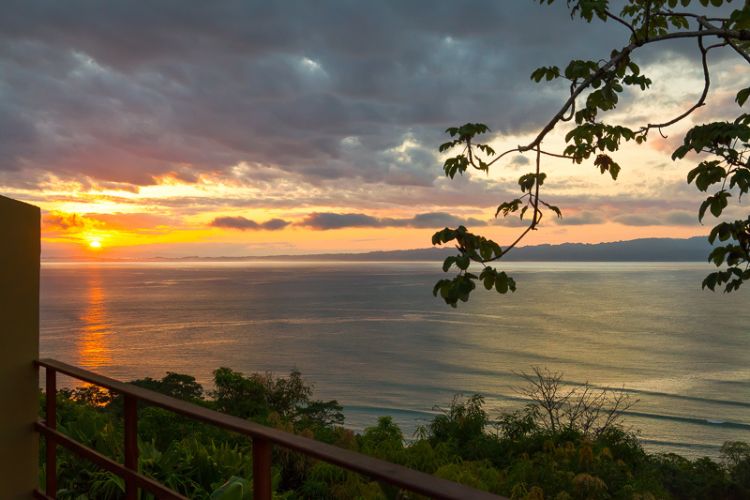
Magical places. We come across them sometimes in our travels. The Osa Peninsula is one of those places – it got under my skin, entered my soul and remains there with a longing to return.
Set amongst 1000 acres of Central America’s last remaining tropical lowland rainforest, Lapa Rios Lodge offers the perfect blend of luxury and wildness on the Osa Peninsula. From the moment I was offered coconut water garnished with a bright pink hibiscus and a bamboo straw, I thought I had entered a dream. It is a place where I was forced to be “unplugged” – no phone, internet or television. No distractions, except for the constant flow of life before me.
Breathtaking Wildlife
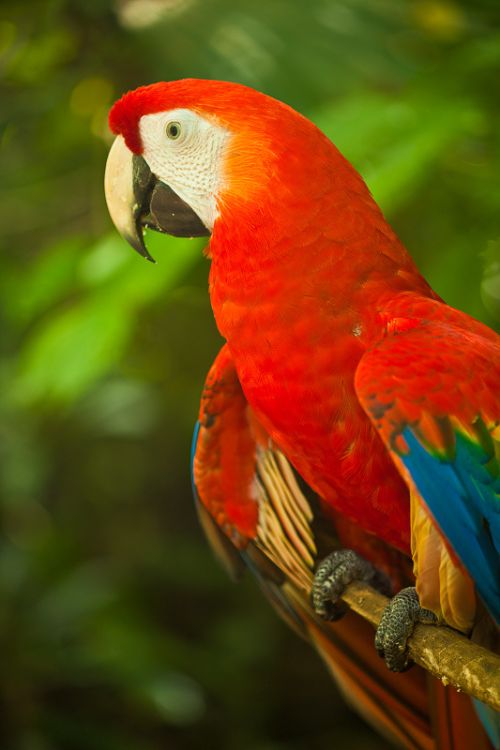
The howler monkeys are my alarm clock. At 4:30am, I lay awake under the diaphanous mosquito netting covering the bed, watching the array of colors and clouds that will evolve into the perfect sunrise.
The many species of birds begin to rouse the rest of the diurnal residents of the rainforest. I can’t help myself. I walk out onto the deck and watch the light skim the ocean, hit the canopy, and caress the thatched roof of our bungalow. As the howlers’ song fades, the waves become audible, and soon the surfers will be rewarded with a long, lovely ride to shore.
A True Escape from the Modern World
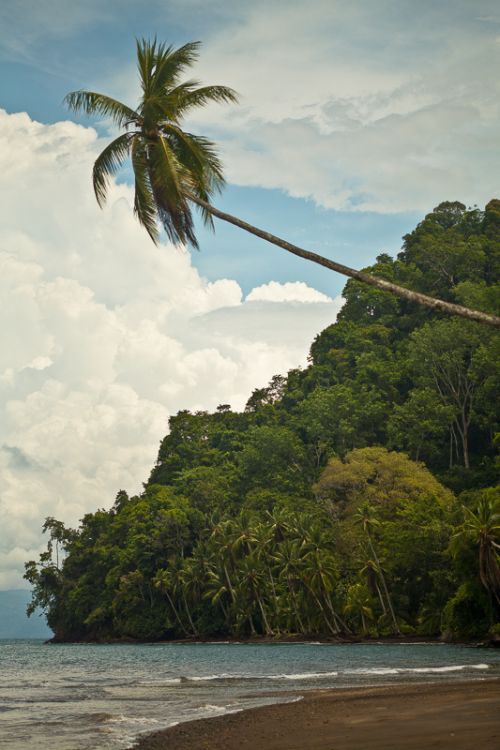
Sometimes we refer to travel as getting away from “real life.” But my time in the Osa taught me that “real life” was right before me, in my face at every moment, whether I was looking for it or not.
With no emails to send, texts to check, phone calls to make, we become increasingly aware of our surroundings. We are present, as there is no other way to be. We must watch each step, to be sure we don’t step on a venomous snake. We check everything before touching, so that we don’t disturb a stinging insect.
A coati comes onto the path, stops and sniffs at my daughter’s feet and goes about his business. We are the visitors here. It is our responsibility to allow the life to unfold here undisturbed.
Nature Right Outside Your Bungalow
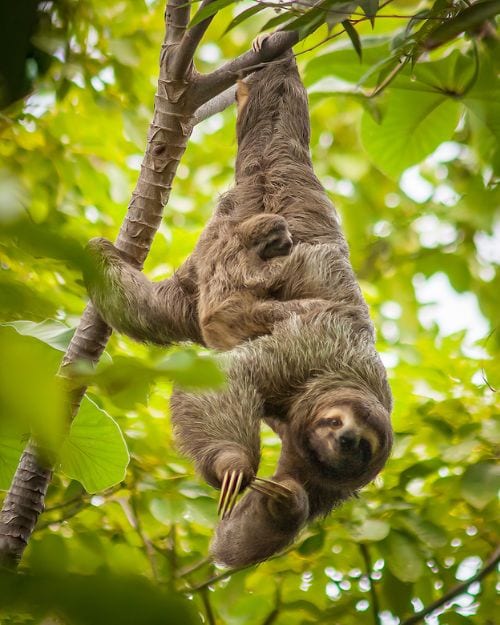
A sloth sleeps in the tree outside our bungalow. A golden orb-spider waits patiently for its next meal in an exquisitely designed web. Scarlet macaws soar over the canopy and squawk at each other disharmoniously. Capuchin monkeys wreak havoc by the pool. Jarringly loud “ping” sounds startle me at night, which I later discover belong to the tiniest dink frog, hiding under a leaf…
Having lived in the Colorado Rockies for many years, we’re accustomed to co-existing with wildlife. But this place is different. This is biodiversity at its extreme. From the seemingly lazy sloths at the tops of the guarumo trees, to the hard-working leaf-cutting ants on the ground, everything co-exists, has a purpose and will continue to thrive here.
The fauna and flora have been here for a very long time and will continue to be, thanks to the staggering number of national parks set up by the Costa Rican government – 28% of this beautiful country’s land is preserved, which, along with a strong environmental education of its citizens, helps to protect 6% of the world’s biodiversity in this small country.
Contagious Costa Rican Joy
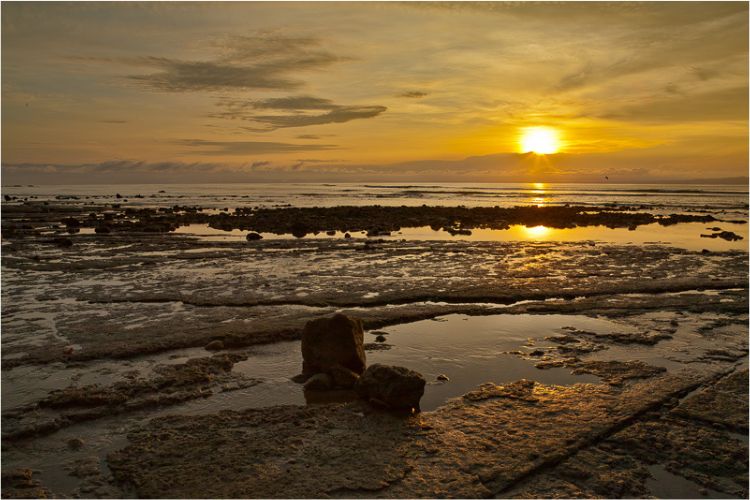
“Pura vida!” It’s a phrase uttered among the Costa Ricans (Ticos) at all times of the day. An expression of greeting, joy and overall mood, I finally began to understand its meaning toward the end of our stay. We have checked out of our “busy-ness” and “shoulds” and have checked in to life, a full life, “pura vida.”
I watch a magnificent lightning storm move from the sea to the rainforest while sharing stories with new friends over a delicious meal. Pura vida! My hard-working husband naps in a hammock, inspired by the sloth, while listening to the buzz of the canopy. Pura vida! My daughter squeals in delight at the dolphins dancing in front of the bow of our boat and jumping in the wake in the Golfo Dulce. Pura vida! We meet schoolchildren and join in an impromptu game of hide ‘n seek. Pura vida!
It is time to leave our little slice of heaven at Lapa Rios Ecolodge. As I wait to board the little plane that will take us to our next Costa Rican adventure, I think about our Osa experiences, smile and say to myself, “Pura vida!”
If You Go:
Lapa Rios Lodge is located near Corcovado National Park, in the Osa Peninsula, Costa Rica. As an award-winning sustainable property dedicated to conservation and exploration, you will find an intimate and authentic experience. Lapa Rios offer a wide selection of packages which can include lodging in a private deluxe bungalow, 3 meals a day, transfers and a selection of on-site tours. While it is a perfect opportunity to put away your devices, wifi connectivity is available at the lodge.
How to Get There
It is a 50-minute flight from San Jose to Puerto Jimenez, and then a 45-minute drive to Lapa Rios. Alternatively, you can drive from San Jose or hire private transportation, which will take approximately 7 hours.
Author Bio: Teri K. Miller is an award-winning photographer and writer with a passion for telling stories about the outdoors, food, and travel around the world. Her work can be seen on her website.
- Discover Claremont, California Along Historic Route 66 - December 6, 2024
- Three Sites to Soothe the Soul in Kyoto, Japan - December 5, 2024
- 13 Essential Tips For Women Traveling in Morocco - December 4, 2024
